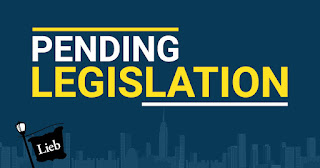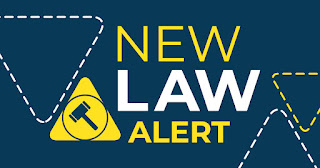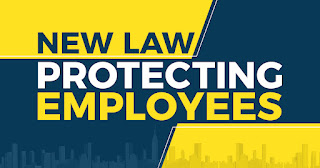We are asking for Andy Byron and the entire Astronomer team after the Coldplay Kiss Cam fiasco.
The truth is that a consensual sexual relationship between a supervisor and an employee does not, in itself, constitute actionable sexual harassment. The reason is simple: Actionable sexual harassment under Title VII requires that the sexual acts at issue be unwelcome by the other participant - Here, Kristin Cabot sure seemed to welcome the sexual acts and she was the HR Head, so she would be hard pressed to act like she did not know her rights to say no.
However, Andy and Astronomer, we aren't done there - here is where you have problems. The real problems for Astronomer stem from how this relationship between Byron and Cabot, and any related conduct, affects other employees who are not directly involved in the consensual relationship as follows:
- Adverse employment action for female employees who did NOT submit to sexual advances can support a Title VII claim of employment discrimination. Here are some case quotes to consider:
- "[R]efusing to accede to sexual advances is an activity protected under Title VII." Rashid v Beth Israel Med. Ctr., 96 CIV. 1833 (AGS), 1998 WL 689931, at *2 (SDNY Oct. 2, 1998)
- "Sexual harassment in the context of employment can form the basis for a Title VII claim. In the typical case, the female plaintiff claims that her male supervisor requested sexual favors from her and conditioned some job benefit, for example a promotion, on her assent. Such a claim is cognizable under Title VII." Toscano v Nimmo, 570 F. Supp. 1197, 1199 (1983)
- "[S]he suffered what amounted to a 'reassignment with significantly different responsibilities' under Ellerth. She testified at trial that after she refused Flick's sexual advances, he substantially reduced her job responsibilities." Roberts v County of Cook, 01 C 9373, 2004 WL 1088230, at *2 (ND Ill May 12, 2004)
- Hostile environment of sexual harassment for non-direct victims can support a Title VII claim of employment discrimination. Here are some case quotes to consider:
- "Evidence of the general work atmosphere, involving employees other than the plaintiff, is relevant to the issue of whether there existed an atmosphere of hostile work environment which violated Title VII. This is so because “[e]ven a woman who was never herself the object of harassment might have a Title VII claim if she were forced to work in an atmosphere in which such harassment was pervasive.”" Broderick v Ruder, 685 F. Supp. 1269, 1277 (D.D.C. 1988)
- "Past California decisions have established that the prohibition against sexual harassment includes protection from a broad range of conduct, ranging from expressly or impliedly conditioning employment benefits on submission to or tolerance of unwelcome sexual advances, to the creation of a work environment that is hostile or abusive on the basis of sex. Such a hostile environment may be created even if the plaintiff never is subjected to sexual advances." Miller v Dept of Corr., 36 Cal. 4th 446, 461 (2005)
- “[A]n employee may establish an actionable claim of sexual harassment under the FEHA by demonstrating that widespread sexual favoritism was severe or pervasive enough to alter his or her working conditions and create a hostile work environment." - Miller v Dept of Corr., 36 Cal. 4th 446, 461 (2005) (note that NYS Courts only require inferior rising above petty slights and trivial inconveniences rather than severe or pervasive)
- Preferential treatment for female employees who submitted to sexual advances (like Kristin Cabot) can support a Title VII claim of employment discrimination by creating a hostile environment. Here are some case quotes to consider:
- "[A] plaintiff makes out a prima facie case of sex discrimination by offering proof that a woman who was promoted to a job in the plaintiff's stead was having a sexual relationship with a person partially responsible for the hiring decision." Drinkwater v Union Carbide Corp., 904 F2d 853, 860 (3d Cir 1990)
- "Additionally, Title VII is also violated when an employer affords preferential treatment to female employees who submit to sexual advances or other conduct of a sexual nature and such conduct is a matter of common knowledge." Broderick v Ruder, 685 F. Supp. 1269, 1277 (D.D.C. 1988)
- "In those cases in which Title VII was extended to allow recovery based upon a supervisor's voluntary sexual relationship with a subordinate, the claims usually were premised upon the paramour receiving some form of preferential treatment over the claimant. (in this case, no Title VII because plaintiff alleged she was fired because she knew of the affair, a motivation that did not rely on her gender)" Ellert v Univ. of Texas, 52 F.3d 543, 546 (1995)
- "[W]here a supervisor's preference for his or her paramour is transformed from simple favoritism to the concrete bestowal of tangible, economically valuable employment benefits denied other employees, such conduct can constitute prohibited discrimination." Perron v Sec'y Dep't of Health and Human Services, 2008 WL 5101577 at *5 (2008)
- "Plaintiff opposes summary judgment in this regard on grounds that she in fact suffered three such adverse actions: 1) her failure to receive an annual special award; 2) her supervisor's selection of his paramour, Pamela Kite, for the desirable Katrina Detail; and 3) James Greer's failure to nominate her for a QSI. Plaintiff further points to circumstances surrounding all three of these actions as evincing Greer's discriminatory intent." Forrest v Brinker Int’l Payroll Co., LP, 511 F.3d 225, 229 (1st Cir. 2007)
- "… plaintiff, without any doubt, was forced to work in an environment in which the WRO managers by their conduct harassed her and other WRO female employees, by bestowing preferential treatment upon those who submitted to their sexual advances. This preferential treatment undermined plaintiff's motivation and work performance and deprived plaintiff, and other WRO female employees, of promotions and job opportunities. The record is clear that plaintiff and other women working at the WRO found the sexual conduct and its accompanying manifestations which WRO managers engaged in over a protracted period of time to be offensive. The record also establishes that plaintiff and other women were for obvious reasons reluctant to voice their displeasure and, when they did, they were treated with a hostile response by WRO's management team." Broderick v Ruder, 685 F. Supp. 1269, 1277 (D.D.C. 1988)
Therefore, the "principle that emerges from the above cases is that absent claims of coercion or widespread sexual favoritism, where an employee engages in consensual sexual conduct with a supervisor and an employment decision is based on this conduct, Title VII is not implicated because any benefits of the relationship are due to the sexual conduct, rather than the gender, of the employee." Tenge v Phillips Modern Ag Co., 446 F3d 903, 909 (8th Cir 2006)
But here’s where the Coldplay Kiss Cam scandal takes a sharper turn. Andy’s wife, Megan Kerrigan, could pursue a divorce and depending on the terms of their prenup or postnup (if one exists), she might need to lean into the workplace discrimination angle to strengthen her financial claims. In doing so, she risks simultaneously substantiating a hostile work environment claim for other Astronomer employees, potentially encouraging those who’ve stayed silent to come forward. As Astronomer’s owner, Megan is caught in a bind - staying quiet protects the company by limiting further exposure to discrimination and retaliation claims, but the scorned spouse in her might not be willing to keep the peace.
If you have been involved in this situation at work and you want to know if you have a discrimination claim, ask yourself the following questions:
- Did this sexual relationship between a supervisor and a co-worker create a workplace atmosphere where sexual harassment was either pervasive or, in New York, rose above petty slights and trivial inconveniences?
- Was there a general workplace atmosphere where multiple employees experienced a hostile environment and was the situation widely discussed among staff? The more employees consistently affected, the stronger the potential case.
- Was there favoritism shown toward employees who submitted to sexual advances from leadership or management and was that favoritism common knowledge? Did it result in lost promotions, missed job opportunities, or a decline in overall morale?
- Most importantly, ask yourself this - Were you ever propositioned by a supervisor and if you refused, were you denied any work benefits, opportunities, or advancement as a result?
If you're navigating a workplace relationship scandal or believe favoritism or harassment is impacting your career,
contact Lieb at Law. Our employment law team is ready to evaluate whether your rights under Title VII or the NYS Human Rights Law have been violated.
*Attorney Advertising


















